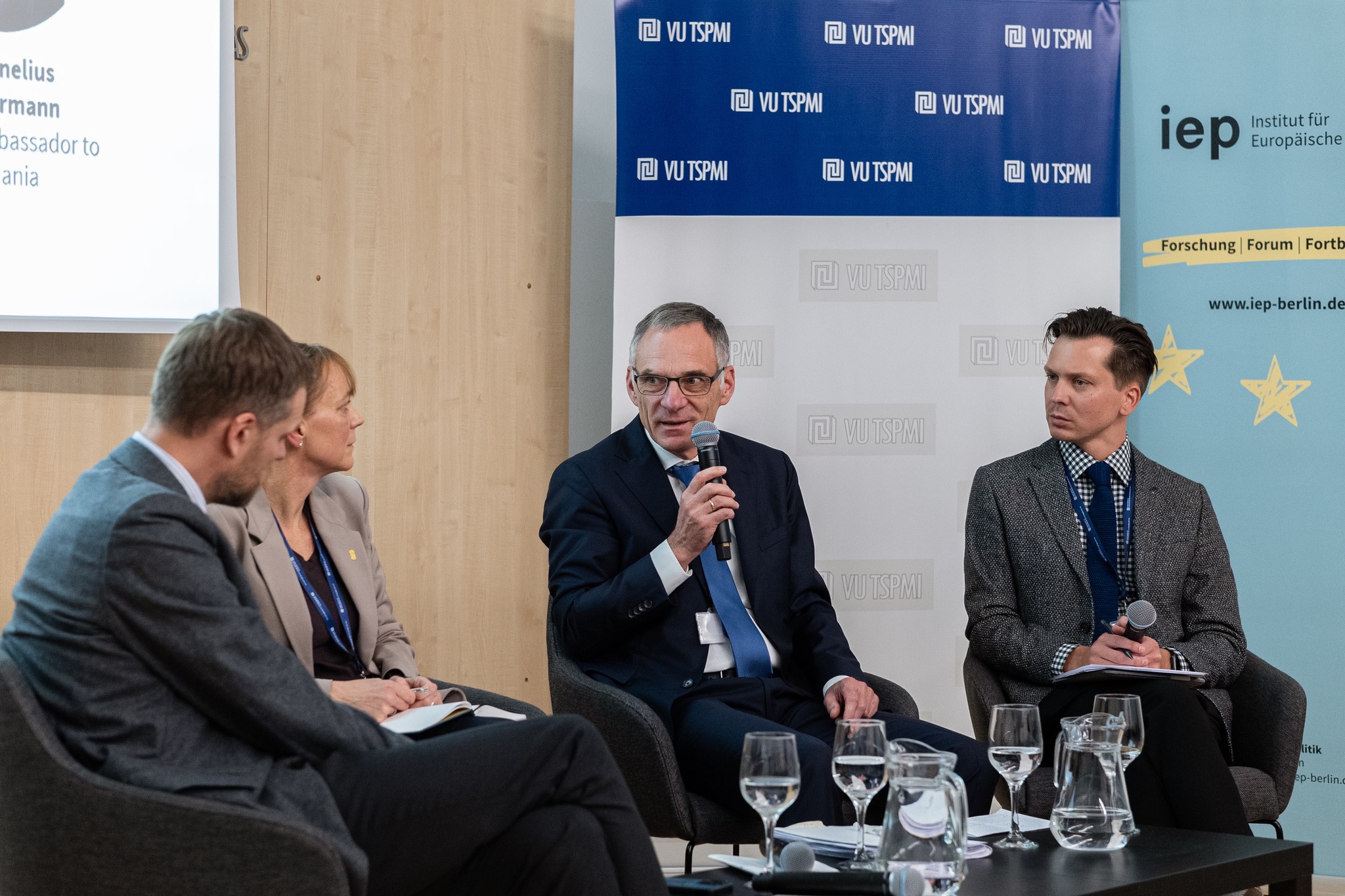In view of common local, European and global challenges, cooperation between Germany, the Nordic and Baltic states can play an important role. The re-election of Donald Trump has brought the need for European unity back into focus. Transatlantic cooperation, which was once taken for granted, is now showing cracks. Therefore, European states must develop strategies to be able to act quickly and decisively, regardless of the political leadership in the White House.
Technical aspects are also relevant here. Potential damages of critical infrastructure emphasise the importance of robust protection, especially in the face of modern threats such as drone and cyber attacks on energy and underwater infrastructure. The integration of the Baltic states into the European electricity grid in 2025 marks a major step forward in this regard and emphasises the need to find synergies between security and sustainability. At the same time, EU enlargement has also taken on new geopolitical urgency. Nevertheless, neither the EU nor the candidate countries are currently ready for enlargement, which harbours risks for major delays detrimental to both sides. In all of these topics, the boundaries between domestic and foreign policy often become blurred blurred. The emotional attitudes of many people towards foreign policy issues can also lead to social polarisation at home. If it becomes too strong, it can jeopardise democratic foundations in the long term.
These are just some of the findings from the 16th German-Nordic-Baltic Forum, which the IEP organized together with its Lithuanian partner, the Institute for International Relations and Political Sciences at Vilnius University (IIRPS). It brought together planners and thinkers from Denmark, Estonia, Finland, Germany, Latvia, Lithuania and Sweden in Vilnius to discuss common challenges and interests.
The core of the forum was constituted by expert discussions behind closed doors. At the start, the director of the IEP, Prof. Dr. Funda Tekin, and the Deputy Director for Science and Research of the IIRPS, Dr Vilius Mačkinis, welcomed participants at a public event. The Lithuanian Foreign Minister, Gabrielius Landsbergis, gave the keynote speech on security and defense cooperation in the EU and NATO, which was afterwards debated by the German Ambassador to Lithuania, Dr. Cornelius Zimmermann, and the Pro-Vice-Chancellor and Head of Research at the Swedish Defense University, Prof. Dr. Malena Britz. The Lithuanian Prime Minister Ingrida Šimonytė and the State Secretary in the Foreign Office for Europe and Climate, Dr. Anna Lührmann, greeted the participants by a video message.
Text author: IEP.









